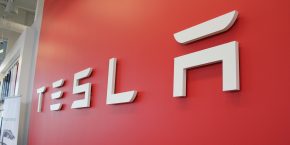
Battery degradation is one of the biggest concerns for electric car owners and potential buyers, but data from Tesla battery packs have been very reassuring so far.
Now the latest data shows less than 10% degradation of the energy capacity after over 160,000 miles on Tesla’s battery packs.
A group of Tesla owners on the Dutch-Belgium Tesla Forum are gathering data from over 350 Tesla vehicles across the world and frequently updating it in a public Google file.
We have previously reported on the data, but they have since added many more vehicles and those vehicles have been driving a lot more – completing more battery cycles.
The data clearly shows that for the first 50,000 miles (100,000 km), most Tesla battery packs will lose about 5% of their capacity, but after the 50,000-mile mark, the capacity levels off and it looks like it could be difficult to make a pack degrade by another 5%.
The trend line currently suggests that the average battery pack could cycle through over 300,000 km (186,000) before coming close to 90% capacity.
Here are the relevant charts from the data gathering effort (full chart on the left and zoomed to 80% on the right):
There are a few outlier battery packs out there and they tried to figure out why by gathering other data, like frequency of DC fast-charging and daily state of charge, but there’s no clear indication that any of those factors have any significant impact based on their data.
With this said, Jeff Dahn, a renowned battery researcher and the leader of Tesla’s research partnership through his battery-research group at Dalhousie University, said that he recommends charging to only 70% daily in order to extend battery life.
Tesla warns that it does not cover battery degradation from “battery usage” under its Model S and Model X warranty up to any specific level:
“The Battery, like all lithium-ion batteries, will experience gradual energy or power loss with time and use. Loss of Battery energy or power over time or due to or resulting from Battery usage, is NOT covered under this Battery Limited Warranty. See your owner documentation for important information on how to maximize the life and capacity of the Battery.”
But for the Model 3, Tesla introduced a warranty with a new 70% battery capacity retention guarantee.
The Model 3 is equipped with different battery cells and a new battery pack architecture, but if data from the Model S is any indication, it shouldn’t be an issue.
Electrek’s Take
Battery degradation is often a big concern for new electric vehicle buyers. To a certain degree, the Nissan Leaf might be to blame since it had a lot of issues in that regard, which is why Nissan has a much more comprehensive battery capacity warranty now.
A recent study shows that with the original 24 kWh pack loses about 20% of their capacity over 5 years and Nissan’s more recent 30 kWh battery pack loses capacity more quickly than the older pack:

But Tesla’s vehicles arguably have a much more advanced battery thermal management system than the Leaf and data from early Model S vehicles has been really encouraging as we can see above.
As for anecdotal data, my own Model S, which is one of the first 2,000 vehicles ever made, only lost about 6% capacity over 5 years.
CEO Elon Musk has been hyping even more potential for Tesla battery pack by once referring to a battery pack that Tesla was testing in the lab. He said that the company had simulated over 500,000 miles on it by repeatedly cycling it and that it was still operating at over 80% of its original capacity. At that point, the car itself is more likely to give up than the battery pack at this kind of mileage.
What do you think? Let us know in the comment section below.
Tesla Solar and energy storage products might be a great solution for your home or business and you can use our code (frederic5610) for a $250 award for a solar panel installation. However, we suggest getting quotes from more than one installer to make sure you get the best energy solution for your place. UnderstandSolar is a great free service to link you to top-rated solar installers in your region for personalized solar estimates for free.
FTC: We use income earning auto affiliate links. More.




Comments